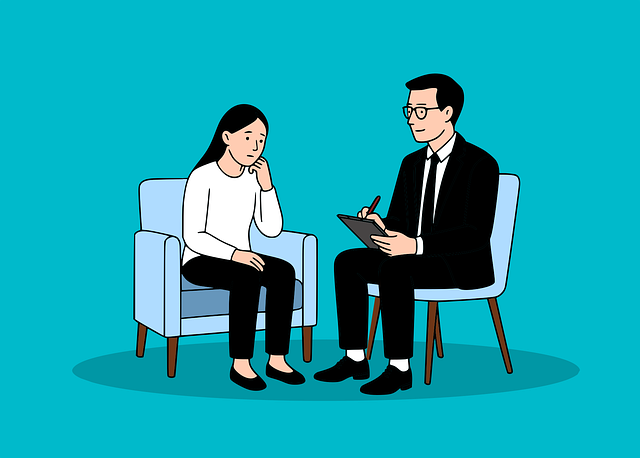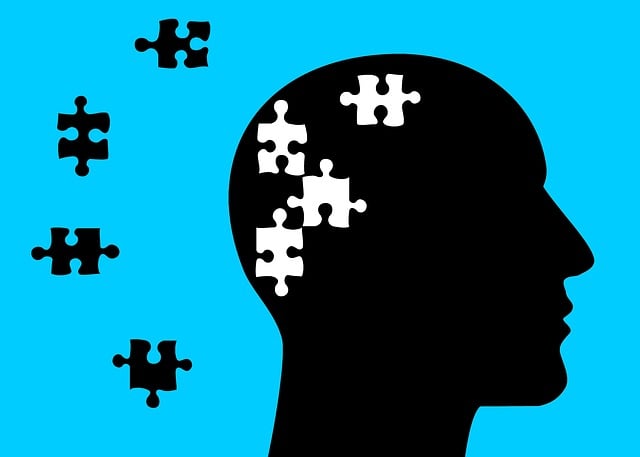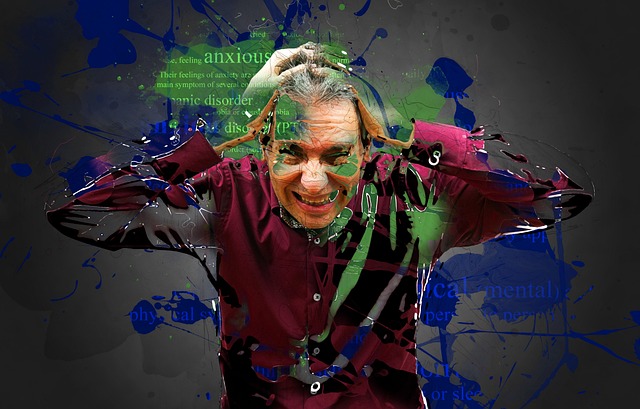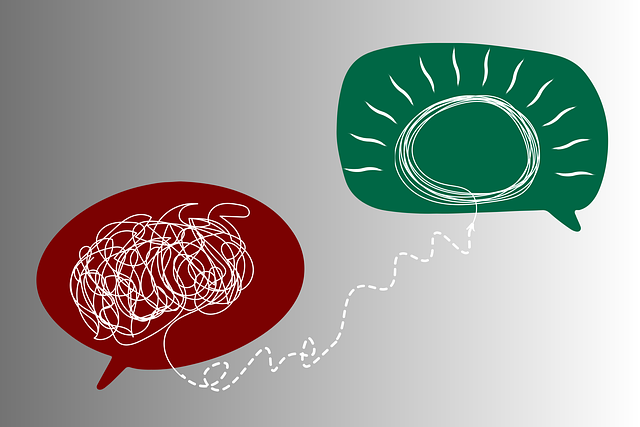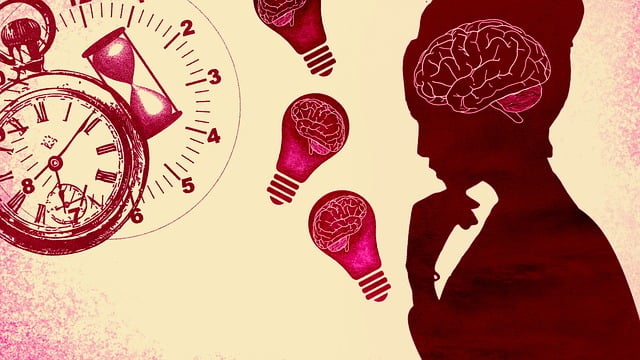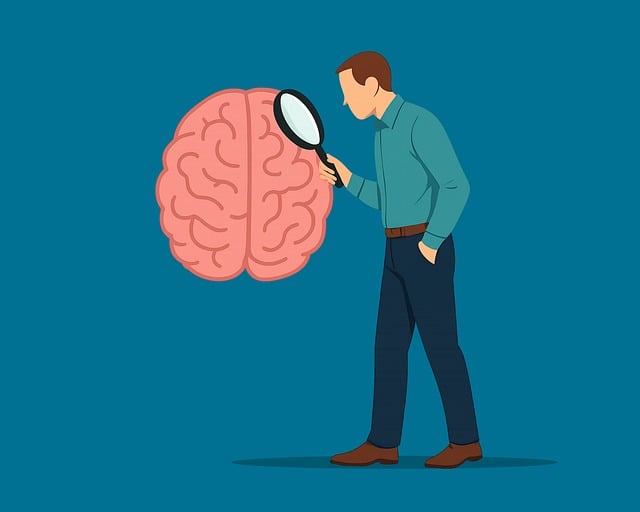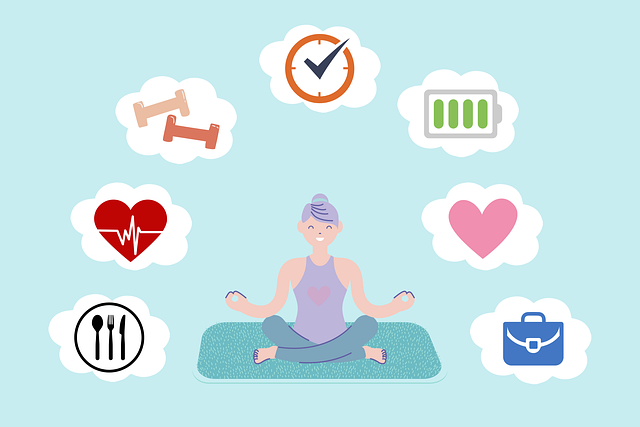Mindfulness meditation, as integrated within Parker Developmental Disability Therapy, is a powerful tool for enhancing self-care and well-being in individuals with developmental challenges. By cultivating present-moment awareness through simple breathing exercises and body scans, this ancient practice fosters calmness, mental resilience, and self-acceptance. Tailored mindfulness techniques, including guided visualizations and focus on bodily sensations, aid in redirecting attention, improving stress management, and fostering non-verbal empathy. Regular integration into daily routines strengthens emotional well-being, self-regulation, and resilience, ultimately revolutionizing mental wellness coaching for both practitioners and their clients.
Mindfulness meditation, a practice proven effective for enhancing focus and reducing stress, is particularly beneficial for individuals with developmental disabilities. This comprehensive guide offers valuable insights tailored by Parker Developmental Disability Therapy. We explore essential aspects from understanding mindfulness’s fundamentals to practical techniques and overcoming challenges. Learn how to prepare your space and mindset, discover effective exercises, and integrate meditation into daily routines for sustainable benefits.
- Understanding Mindfulness Meditation for Developmental Disabilities
- Preparing Your Space and Mindset for Practice
- Techniques and Exercises for Effective Meditation
- Overcoming Common Challenges During Mindfulness Sessions
- Integrating Meditation into Daily Life for Sustained Benefits
Understanding Mindfulness Meditation for Developmental Disabilities

Mindfulness meditation has gained recognition as a powerful tool for individuals with developmental disabilities, offering a unique approach to self-care and well-being. This ancient practice focuses on training the mind to be fully present in the current moment, fostering a sense of calm and awareness. For those navigating developmental challenges, such as those supported by Parker Developmental Disability Therapy, mindfulness can be transformative. It provides a means to manage stress, improve focus, and enhance overall mental resilience.
By incorporating mindfulness meditation, individuals with developmental disabilities can learn to observe their thoughts and emotions without judgment. This process, grounded in the principles of mind over matter, encourages self-acceptance and promotes healthier coping mechanisms. Moreover, regular practice may aid in reducing the impact of internalized mental illness stigma, enabling a more positive self-perception. Additionally, mindfulness meditation techniques can include simple breathing exercises and body scans, making it accessible for diverse learning styles, even when incorporating conflict resolution techniques as part of therapy sessions.
Preparing Your Space and Mindset for Practice

Creating a dedicated space for mindfulness meditation is a crucial step in your practice journey. This involves setting aside a quiet area in your home that feels serene and supportive, free from distractions and clutter. Consider using soft lighting, comfortable seating, and perhaps some calming decorations to create an atmosphere conducive to relaxation and introspection. The process of preparing your physical surroundings should be as mindful as the practice itself; take a moment to appreciate each element you choose, ensuring they resonate with your personal preferences and promote a sense of calm.
Prior to beginning your meditation session, cultivate a mindset of openness and curiosity. Parker Developmental Disability Therapy emphasizes the importance of self-acceptance and non-judgmental awareness. Approach your practice with kindness and patience, acknowledging that every session is an opportunity for growth and development. Mindfulness meditation is not about emptying your mind but rather observing thoughts and sensations without attachment or judgment. This shift in perspective can be a game-changer, enabling you to engage with your mental wellness coaching programs more effectively and derive greater benefit from healthcare provider cultural competency training initiatives.
Techniques and Exercises for Effective Meditation

Meditation is a powerful tool for cultivating mindfulness, and when tailored to individual needs, it can be especially beneficial for those with developmental disabilities. Techniques such as focused breathing exercises, where one concentrates on inhales and exhales, help to calm the mind and body. This simple practice encourages individuals to become aware of their senses and present moment experiences without judgment, fostering a sense of inner peace.
For more interactive sessions, guided visualizations can transport practitioners to serene environments, promoting relaxation and stress management. These exercises often involve imagining peaceful scenes or engaging sensory details, allowing for enhanced focus and emotional regulation. Additionally, social skills training through mindfulness meditation encourages non-verbal awareness and empathy by teaching individuals to observe and respond mindfully to others’ cues, benefiting both personal interactions and community engagement.
Overcoming Common Challenges During Mindfulness Sessions

Overcoming Common Challenges During Mindfulness Sessions
Many individuals find mindfulness meditation beneficial, yet they often encounter challenges that hinder their practice. At Parker Developmental Disability Therapy, we recognize that cultivating a consistent meditation routine can be difficult, especially for those navigating mental health concerns. One of the primary obstacles is maintaining focus; the mind’s natural tendency to wander requires constant reassurance and gentle redirection. By employing techniques such as guided visualizations or focusing on bodily sensations, individuals can learn to steer their attention back to the present moment without judgment.
Additionally, self-care routine development for better mental health plays a crucial role in overcoming these challenges. Regular meditation practice, combined with other wellness activities like exercise and adequate sleep, creates a holistic approach to mental well-being. Healthcare provider cultural competency training and mental health education programs design can further support individuals by providing tailored strategies and fostering an environment that encourages continued mindfulness exploration, even when facing setbacks or common obstacles during sessions.
Integrating Meditation into Daily Life for Sustained Benefits

Integrating mindfulness meditation into daily routines is key to unlocking its long-term benefits. It’s not just about finding time to sit quietly; it’s about cultivating a mindful approach throughout your day. Start by incorporating simple practices like mindful breathing during breaks or conscious eating without distractions. These moments of awareness can significantly enhance emotional well-being promotion techniques, helping to manage stress and improve focus.
For individuals with developmental disabilities, as supported by Parker Developmental Disability Therapy, mindfulness becomes a powerful tool for self-regulation and inner strength development. Regular practice allows one to better navigate challenging situations, fostering resilience and a sense of calm. By integrating meditation into daily life, mental health professionals can also enhance their risk management planning, improving their own emotional well-being and, in turn, providing more effective support for clients.
Mindfulness meditation, as explored through the lens of Parker Developmental Disability Therapy, offers a powerful tool for managing and enhancing mental well-being. By creating a supportive space and adopting effective techniques, individuals with developmental disabilities can navigate challenges and reap the benefits of this practice. Integrating mindfulness into daily routines enables folks to foster self-awareness, reduce stress, and promote overall emotional resilience, ultimately leading to a more fulfilling life.
